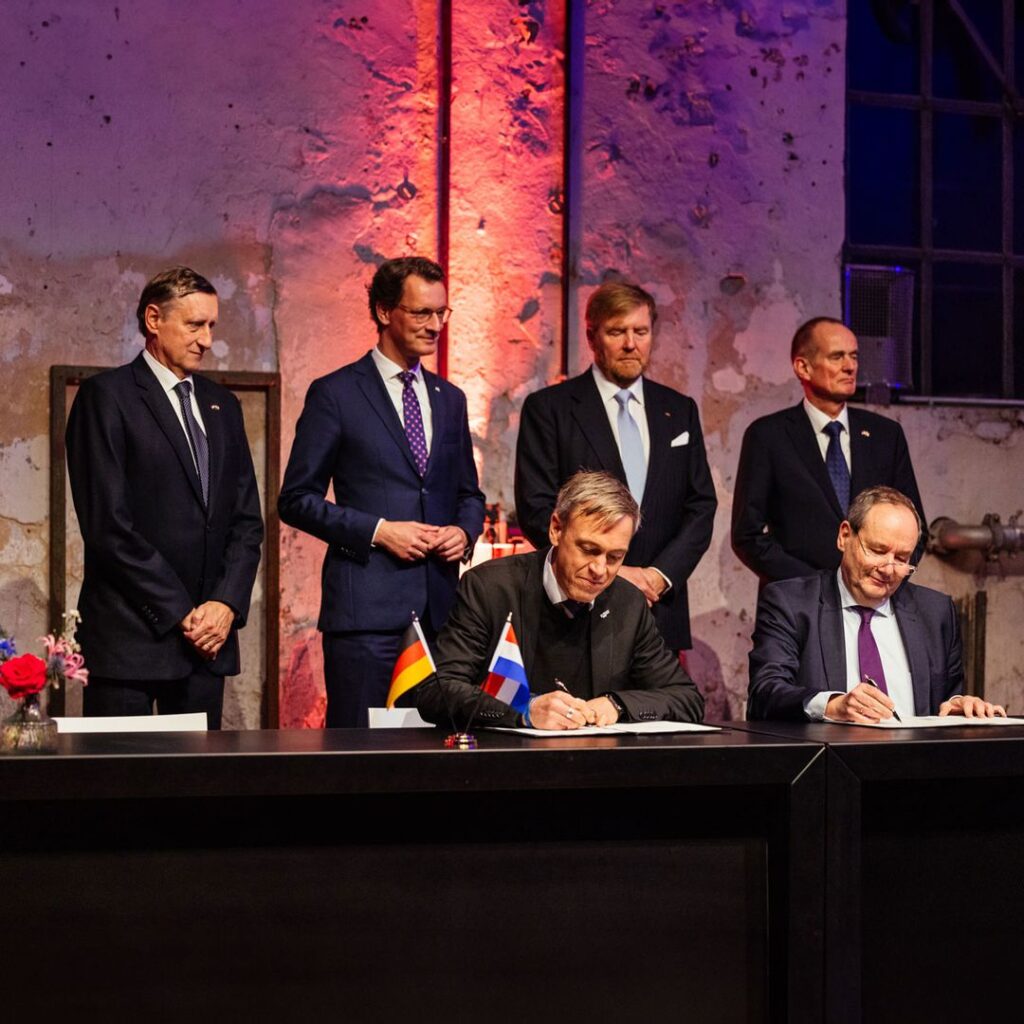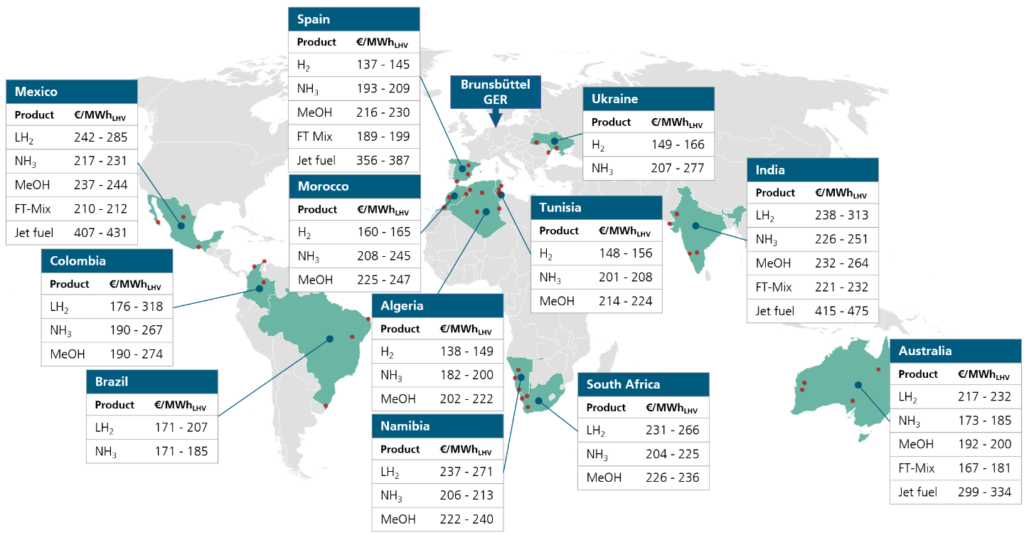“A common vision”: Germany forge new ties for hydrogen imports with the Netherlands, Africa
By Oscar Pearce on November 27, 2023

Germany and the Netherlands have doubled down on their common vision of a thriving European green hydrogen import market, with two significant announcements on November 14. The countries have announced a joint H2Global tender, contributing €300 million each, as well as a plan to develop effective cross-border hydrogen infrastructure connecting Dutch ports to German industry. Also this month, a new €4 billion commitment to Africa will act as the “starting signal” for deeper cooperation on hydrogen & renewable energy.
A vital continental partnership
The announcements represent a new chapter in a “long-standing and close friendship” between the two nations, and reflect a joint intent “to address climate change, accelerate the global energy transition and safeguard international energy security”.
The joint €600 million tender will use H2Global’s innovative double auction structure operated by Hintco. The tender will be launched in the first part of 2024, and offer 10 year purchase agreements to suppliers running from 2027 to 2036. The use of the H2Global mechanism is an affirmation of its potential role in underpinning the emergent European green hydrogen import market:
[Germany and the Netherlands] recognise that there remains a green premium in terms of higher costs for those off-takers willing to choose renewable hydrogen over fossil fuels and that the H2Global mechanism is an effective instrument to cover the necessary green premium.
From Joint Declaration of Intent on the implementation of a joint tender under the H2Global instrument (The Government of the Federal Republic of Germany and The Government of the Netherlands, November 2023)
The declaration relating to hydrogen infrastructure represents a separate, but nonetheless significant, step towards the “synchronised coupling” both nations aspire to. The declaration specifies four future hydrogen interconnection points along the border: Bunde-Oude Statenzijl, Kalle-Vlieghuis, Elten-Zevenaar, and Vreden-Winterswijk. In addition, it highlights the storage potential of sites in Zuidwending, Epe, Jemgum, Xanten, and Nüttermoor. These are tangible ambitions that could foreseeably underpin the merging of Dutch and German hydrogen networks, thereby streamlining supply chains running from Dutch ports to German industry, and vice versa.
Emerging ties with Africa
Also this month, the German federal government has committed €4 billion to the joint EU-Africa initiative for green energy. German Chancellor Olaf Scholz had a simple message for prospective hydrogen & ammonia producers in Africa – “produce green hydrogen and you can rely on us as buyers”. And, although exports to Europe may be the focus, access to sustainable, affordable energy for Africans is a high priority for Germany as part of the new commitment. The commitment acts as a “starting signal for stronger, reliable cooperation” on hydrogen between Germany and Africa, so expect further announcements in the months to come.
Intercontinental supply chains: where will imports come from?

These proactive steps taken in Europe will have ramifications across the emerging global green hydrogen market. Crucially, it remains to be seen which suppliers will meet this increased demand.
However, a recent study from the Fraunhofer Institute for Solar Energy Systems provides a useful summary of the options available. The study highlights the significant cost variance between possible export nations, and between different Power-to-X variants.
The study concluded that:
Brazil, Colombia, and Australia offer particularly good conditions for the import of green ammonia, methanol, and kerosene. Imports of gaseous green hydrogen could come from southern Europe or North Africa, provided that pipelines are available in time for transport.
From Power-to-X Country Analyses (Fraunhofer ISE, August 2023)
After these recent announcements, it is ever more clear that Germany and the Netherlands will play a significant role, facilitated by the H2Global mechanism, in driving the growth of the green hydrogen export market in the years to come. If successfully implemented, the joint Dutch-German hydrogen network will be a thriving hub in this emerging market and provide assurance and incentive for prospective suppliers across the world.